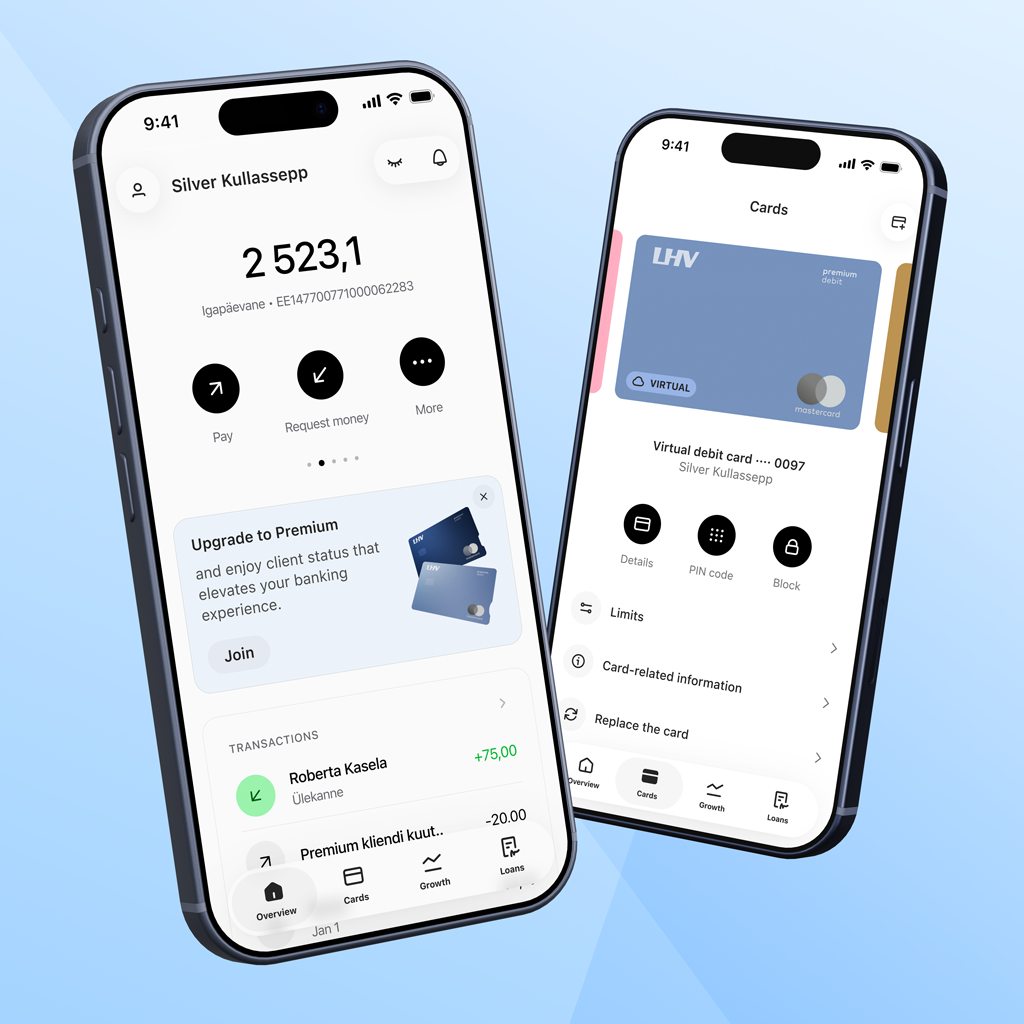
Seven things to consider if you want to begin investing in global equities
24. august 2023In most cases, novice investors tend to begin investing in their home market, where buying, holding, and selling shares is free of charge. But what should you know if you want to move on to global equities?
The most popular choice when first starting out in investing is a Growth Account or a stock trading on the Baltic stock exchange. With a bit of investment experience, a clear understanding of how stock markets work, and more spare cash available, investors often start to look abroad. Sander Pikkel, Head of LHV Brokerage, shares advice on what should be taken into account in such cases.
1. Fees applicable to global equities
We see from our clients that as time passes and experience grows, investors from around the world start to look for new and attractive investment opportunities. Moving on to global equities, it is worth noting that unlike trading on the Baltic stock exchange, most countries charge a service fee of 0.14% of the transaction amount, with a minimum of EUR 9 per transaction. However, for some countries, the financial transaction fee is different: for example, 0.2% of the amount of the transaction for Italian and Spanish equities, and 0.3% for French equities. It is therefore worth taking transaction fees into account and not trading global equities in amounts that are too small.
2. You can invest small amounts via a Growth Account
If you only have small sums to invest, and are looking to gradually begin investing in foreign equities, we recommend using a Growth Account. It can be used to invest small amounts, not only in index funds, but also in popular foreign equities. This means that if, for example, a single Microsoft share would otherwise cost more than USD 300, you can buy a smaller piece for as little as EUR 1 with a Growth Account.
3. It may be more difficult to find information about companies
While companies listed on the Baltic stock exchange, and in particular on the Tallinn Stock Exchange, are familiar to us in the big picture because we consume their products and services or keep up to date with their fortunes through local news, information about foreign companies can be a little more difficult to find. News about big players like Meta, Tesla, Apple, etc., will reach our media, but for other countries and more specific companies, it is up to each individual to find the best channels.
4. Currency movements can affect your profits
If you are entering foreign markets where a different currency is used, you also need to be aware that movements in the exchange rate may affect your profits. For example, if you buy shares on a US stock exchange in dollars and the dollar falls against the euro in the intervening period, the fall in the dollar against the euro will eat into the gain, despite the rise in share price.
5. Dividends are generally taxed more heavily
There are investors who deliberately choose to invest in dividend equities. While we are used to talking about net dividends in the case of local stock exchanges and companies, in the case of foreign equities it is also worth paying attention to taxation, as dividend rates are gross, i.e., income tax is also withheld from dividend payments. Read more about declaring investments and the taxing of dividends.
6. Investing in the US stock market requires proof of residency
Diving into the US stock markets, it is worth noting that LHV applies the lowest tax rate in Estonia to US dividends – 15% instead of the usual 30%. To do this, you need to confirm your tax residency, i.e., fill in a W-8BEN certificate. The W-8BEN proof of residency form for non-residents issued by the US Internal Revenue Service is mandatory for trading in US equities at LHV Bank and we recommend that you complete it early.
7. Orders can also be forwarded to the pre-market
While on the Baltic stock exchange we are used to the market opening at 10.00 and closing at 16.00, in the case of the US stock exchange it pays to know that shares can be bought and sold in the pre-market. Trading on the US pre-market is available in LHV mobile and Internet banking from 14.00-16.30 and on the Trader trading platform from 11.00. The pre-market often provides an indication of the direction in which a stock or the stock market as a whole will move on a given trading day, but it is also worth bearing in mind that trading in the pre-market can be riskier than trading in the regular market.




